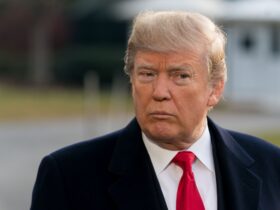New Delhi: India and the US finally signed the Basic Exchange and Cooperation Agreement (Beca) for Geo-Spatial Cooperation Tuesday, taking their relations a notch higher in defence and military relations.
The two countries had been holding discussions over the pact for around a decade with India fearing that Beca would allow the US to access classified Indian information.
Beca was signed by Defence Minister Rajnath Singh and his US counterpart Mark Esper during the third India-US 2+2 Ministerial Dialogue in New Delhi. US Secretary of State Michael R. Pompeo and Esper were on a strategic diplomatic and defence visit to New Delhi.
The two-day 2+2 ministerial dialogue took place against the backdrop of heightened military and diplomatic activity in the South Asian and the Indo-Pacific regions due to China’s military and naval overreach in these regions.
Beca is significant as it was signed at a time when India faces Chinese aggression on its Ladakh border.
With Beca, India will have access to geo-spatial data from US military satellites which can be applied to its missile and defence technologies. The information that the two countries will exchange will include both classified and unclassified data — maps, topographical images and military coordinates.
The information exchange also covers nautical and aeronautical charts, commercial and other unclassified imagery, geophysical, geomagnetic and gravity data.
These will help India strike military targets with its missiles and bombs with greater precision. Beca will also help India upgrade and improve its maps. The agreement will not only support Indian military activity on its border with Pakistan and China but also provide India with accurate information on the Chinese Navy movement in the Indian Ocean.
Indian External Affairs Minister S Jaishankar said: “The 2+2 dialogue has a polmilitary agenda that underlines our close relationship. Our national security convergences have obviously grown in a more multi-polar world. We meet today to not only advance our own interests but to ensure that our bilateral cooperation makes a positive contribution in the world arena.”
With India, US, Japan and Australia coming together for the Quad, the signing of Beca will strengthen the Quad as well.
The four countries are also coming together for the Malabar naval exercises in the Indian Ocean region.
India had earlier signed another defence pact with the US the Logistics Exchange Memorandum of Agreement (LEMOA), also known as the Logistics Support Agreement (LSA).
This year, and over the last few years, India has inked a number of pacts with Japan, Australia, Russia and France to advance defence and navy cooperation.
All these agreements will allow India to access and share military and naval facilities with partner countries for repairs, servicing and refuelling facilities. These pacts will extend India’s military reach to other regions as its Navy ships and military aircraft will be allowed access to bases of partner nations.
In a provocative message to Beijing, US Secretary of State Mike Pompeo said that Washington will provide any support to India as “deterrence” against China. The statement came in his only television interview to Times Now. In response to a question whether the US has decided to offer India more than just diplomatic assistance in the event of a conflict with China or Pakistan, Pompeo said, “We did sign a series of important agreements but the agreements themselves were less important than the central understanding that came alongside them.
“What’s become very clear now is that there is a battle and the battle in the world is between freedom and authoritarianism, and India, like the US, has chosen democracy and freedom and sovereignty…
“So when confronted by tyranny by the Chinese Communist Party, you can be sure that the US will stand by as partners. We will.”












Leave a Reply